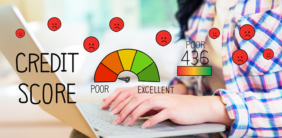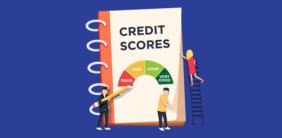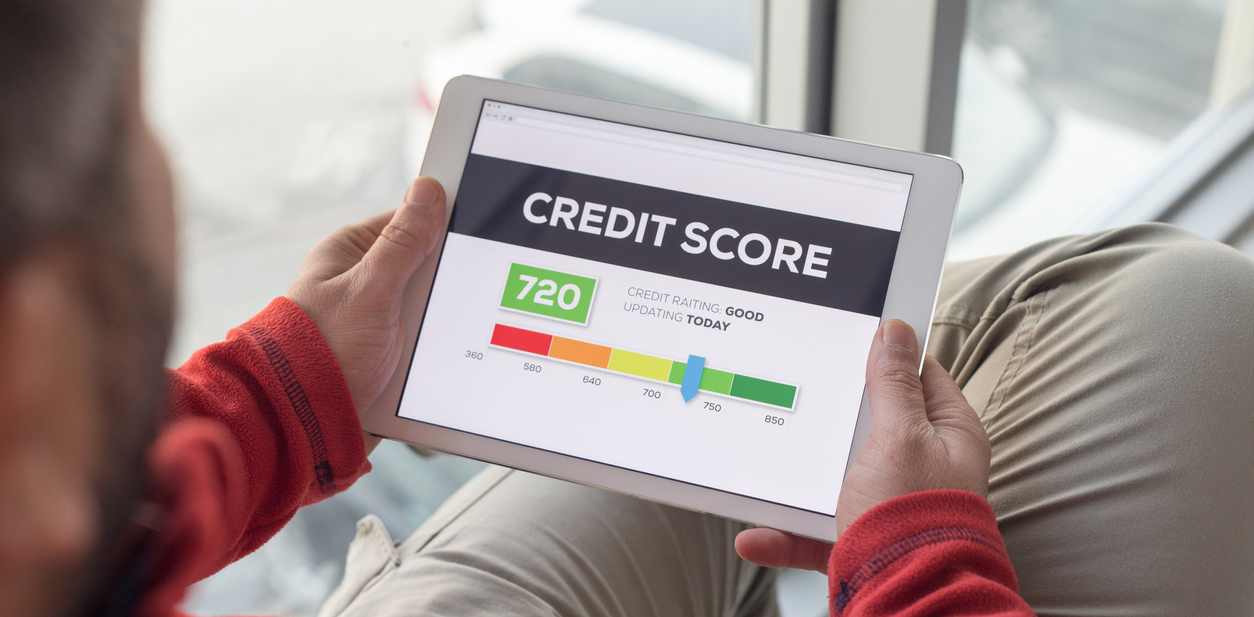I Paid Off My Car Loan. Now What?
;)

Find out what steps you need to take once you finally own your car free and clear.
Congratulations! You’ve made the final payment on your car. While this is an exciting time, it may also leave you wondering what to do next. Fortunately, we’re here to break down the actions you need once you own 100% of your vehicle.
What Should I Do After I Pay Off a Car Loan?
After you complete that last monthly car payment, take some time to celebrate. Owning a vehicle free and clear is a great accomplishment. Once reality has set in and you realize you’ll have some extra cash to spend now, follow these steps.
Check Your Credit
You may be surprised to learn that your credit score might go down once you no longer have a loan payment. This is likely to occur if your auto loan was your only account with a low balance or the only installment account in your credit mix.
Visit AnnualCreditReport.com to pull free copies of your credit reports and figure out where your scores stand. Rest assured that any dip in your credit will be temporary, as long as you pay your bills on time and commit to being a responsible borrower.
While you review your reports, make sure that all of the information related to your car loan (and other credit accounts) is accurate. If you notice any errors or inaccuracies, dispute them as soon as possible.
Get Your Car Title
A car title is an important legal document that states you are the owner of your vehicle. The state you live in will determine whether or not you already have a title and what steps you’ll need to take to obtain one.
Once you get your title, store it in a safe place in your home (not your car). It’s also a good idea to take a picture of it so that you always have a digital copy and can access it quickly from anywhere.
Non-Title-Holding State
Most states are non-title holding states. If you live in a non-title-holding state, you may already have a title that was issued by the Department of Motor Vehicles (DMV) in your state. The lien holder or lender who financed your loan is also listed but you are the primary title owner. Once you pay off your car loan, it’s your job to contact your state’s DMV and ask them to remove the lien holder from your title.
Title-Holding State
There are only nine title-holding states including Kentucky, Maryland, Michigan, Minnesota, Missouri, Montana, New York, Oklahoma, and Wisconsin. In the event you live in a title-holding state, the title will feature the lien holder’s name until you own your car free and clear. Once your loan balance reaches zero, the lien holder will promptly send you the title or a lien release document.
When you receive one of these documents, you’ll need to follow the protocol in your state to transfer the title to your name. This way you’ll have proof of vehicle ownership and the right to sell the vehicle in the future if you wish.
Should I Update My Insurance After Paying Off My Car?
Lenders require certain types of insurance coverage that usually exceed the minimum state coverage requirements. Therefore, a paid off car loan may open the door to better insurance rates.
After you pay off your car, contact your insurance company to let them know. They may ask to see proof of your lien-free title so they can remove the lien holder from your policy. This is essential because if you are in an accident with an insurance payout, you want to ensure the money goes to you instead of the lender.
Your insurance company may also potentially offer a more affordable rate. If you’re unable to save money on your car insurance with your current insurer, don’t be afraid to shop around. There’s a good chance you’ll find better rates elsewhere.
Can I Opt for Less Coverage If I Have a Paid Off Car?
After you make your final car payment, you won’t have to adhere to the auto insurance policy requirements set forth by your lender. However, this does not mean you should get rid of most of your coverage or even worse, forgo it altogether.
Chances are your vehicle is still worth some money. If you get into a car accident, you’ll have to pay for damages out-of-pocket, unless your policy will cover it. By investing in comprehensive and collision coverage, you’ll be able to protect yourself from hefty expenses down the road.
No matter what you do, make sure you follow the minimum insurance requirements in your state. Some states only require liability insurance, which protects against bodily injury and property damage you do to someone else.
Other states ask that you invest in personal injury protection, which covers medical bills that you or your passengers may face. Your state may also make uninsured and/or underinsured motorist insurance mandatory. Even though collision and comprehensive coverage are optional no matter what state you live in, they are highly recommended.
What Should I Do with the Extra Money If I No Longer Have a Car Loan?
After you pay off your car loan, you may be tempted to walk into a local dealership and buy a shiny new car with all the latest features. While this is an option, it’s probably not the smartest choice. You may be better off saving the money you would normally spend on car payments.
What you do with this savings fund should depend on your unique financial situation and goals. Here are some ideas.
New Car Fund
Unfortunately, your vehicle won’t last you forever. At some point, it’ll bite the bullet and require you to buy a new one. With a new car fund, you’ll have some cash on hand to pay for a substantial down payment and enjoy lower monthly payments on your next car. You may even be able to pay for a huge chunk of or all of your car in cash.
Car Repair and Maintenance Fund
Just because you’ve paid off your car, doesn’t mean it’ll cost you nothing from here on out. Your car will need maintenance and repairs which can add up quickly. This may be the case even if you have a warranty. Consider a car repair and maintenance fund so that you always have the cash to keep your car in optimal shape, no matter what it needs.
Emergency Fund
An emergency fund can help you out if you lose your job, need to cover a medical bill, or face any other financial emergency. If you don’t have an emergency fund, it’s in your best interest to use your extra money to build one. Most personal finance experts suggest that you save three to six months of expenses in a high-interest savings account. Your job stability and family size will determine if you save more or less.
Debt Payments
If you have other debt like credit card debt, a mortgage, personal loan, or student loan, you may want to allocate your extra money toward paying it down. The fewer payments you have every month, the more money you’ll have to put toward home improvement projects, travel, college, retirement, or any other goal that’s important to you.
Is It a Good Idea to Pay Off My Car Loan Early?
If you’re planning to complete your loan payoff early, you’ll be able to save on interest and free up funds for other expenses. While it may seem like a no-brainer to do so, it doesn’t always make sense. Avoid paying off your car loan early if the prepayment penalties outweigh the financial benefits you’ll receive. You should also refrain from going this route if you have higher interest debt to pay down.
If your car loan does not come with prepayment penalties and you don’t have higher interest debt, however, paying it off early may be a wise move. To do so, follow these tips.
- Bi-Weekly Payments: Rather than paying for your car once a month, make payments every two weeks.
- Round Up: Instead of paying your exact monthly payment amount, round up. If you owe $430 every month, for example, pay $450.
- One Large Payment: Every year, put any windfall money you may receive from a birthday or bonus toward one large extra payment on your car loan.
- Refinance: If your credit has improved since you took out your loan, you may want to look into refinancing. This way you can secure a lower interest rate and lower monthly payments that make it easier to pay off your car early.
Early Payoff Auto Loan Calculator
Enjoy Life With a Paid Off Car
There’s no denying that paying off a car loan often takes years of hard work, persistence, and sacrifice. Doing so, however, is a great feeling that can bring you a great deal of freedom and peace of mind.
Once you’ve paid off your loan, pat yourself on the back and enjoy the extra money in your pocket each month. After all, you earned it.











